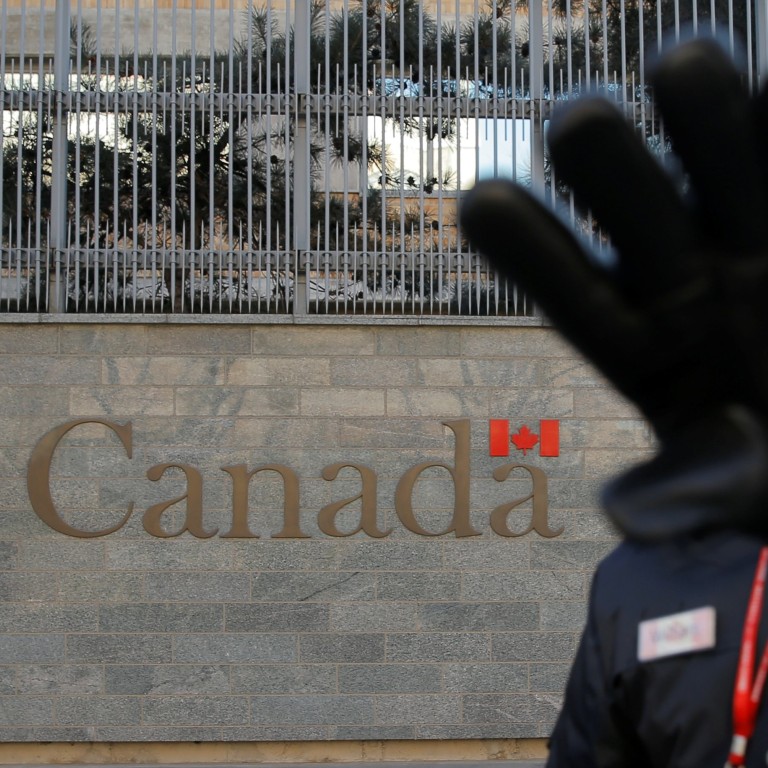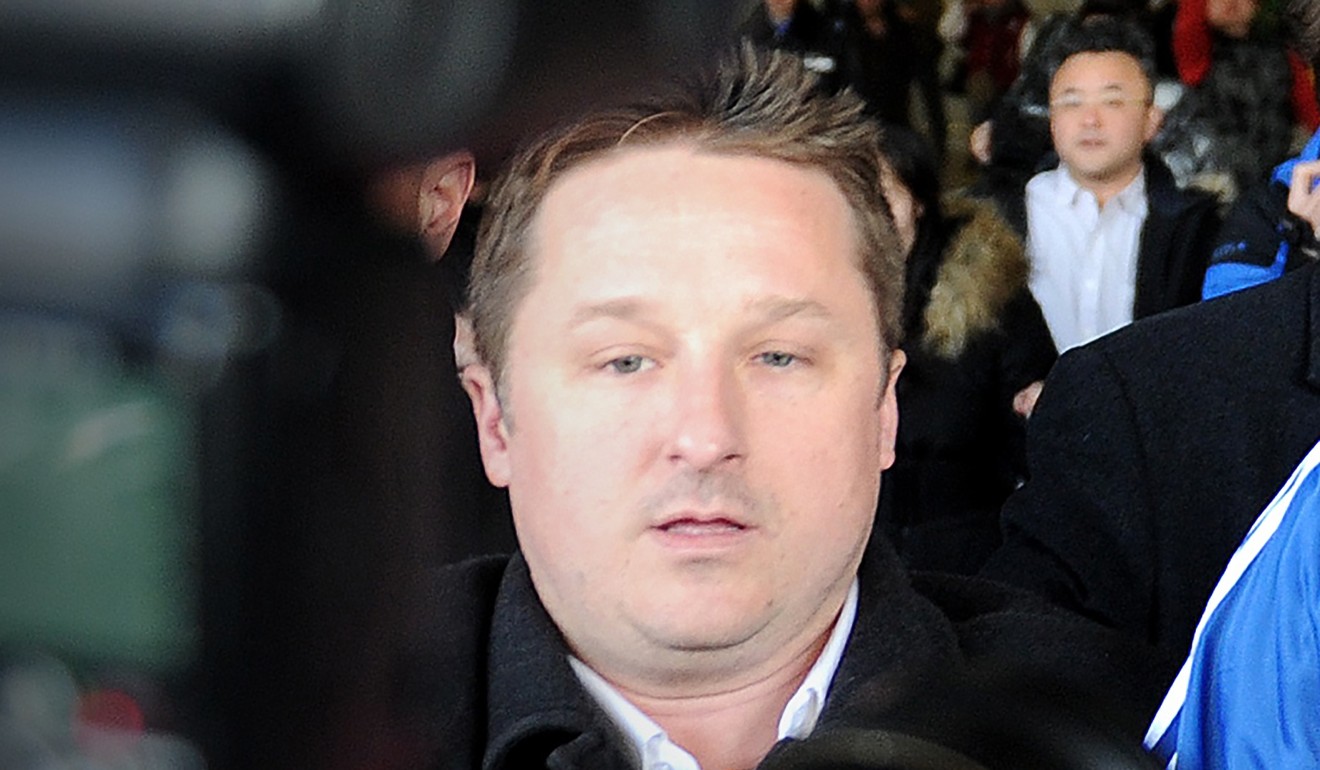
143 former China diplomats and academics write to Xi Jinping demanding Canadian detainees be freed
- Open letter to Chinese president warns of less dialogue and greater distrust
- ‘Both China and the rest of the world will be worse off as a result’
A group of 143 scholars and former diplomats have signed an open letter to Chinese President Xi Jinping demanding the release of two Canadian citizens amid an intensifying diplomatic spat between Beijing and Ottawa.
The open letter, signed by 116 scholars and 27 former diplomats from a total of 19 countries, called for the release of former diplomat Michael Kovrig and businessman Michael Spavor, who have been detained for six weeks since December 10.
Both men were accused of “activities that endanger China’s national security”, in what has been widely seen as politically motivated retaliation for the arrest of Huawei Technologies chief financial officer Sabrina Meng Wanzhou.
The signatories of the letter, who said they were “deeply concerned” about the detention of the two Canadians, include former ambassadors to China from Canada, the United States, Britain, Australia, Germany, Sweden, and Mexico, two former US deputy assistant secretaries of state, and former foreign ministers from Britain and Australia.
Chinese ambassador Lu Shaye warns ‘back-stabbing’ Canada to stop rallying allies in row over detainees
The letter said Kovrig, a former diplomat in Beijing and the senior adviser for Northeast Asia at the International Crisis Group, “regularly and openly met with Chinese officials, researchers, and scholars to better understand China’s positions on a range of important international issues”.
Spavor, a businessman with ties to North Korea, “has devoted his time to the task of building relationships between the Democratic People’s Republic of Korea and China, Canada, the US, and elsewhere”, the letter said, adding that the detention of the two men sent “a message that this kind of constructive work is unwelcome and even risky in China”.
“We who share Kovrig and Spavor’s enthusiasm for building genuine, productive, and lasting relationships must now be more cautious about travelling and working in China and engaging our Chinese counterparts,” it said.
“That will lead to less dialogue and greater distrust, and undermine efforts to manage disagreements and identify common ground. Both China and the rest of the world will be worse off as a result.”

Prominent names among the group include US scholars David Lampton, director of China Studies at the Johns Hopkins School of Advanced International Studies; Bonnie Glaser of the Centre for Strategic and International Studies; Jerome Cohen, professor of law at New York University; Orville Schell of the Asia Society; and Susan Shirk, former deputy assistant secretary of state during the Clinton administration.
The signatories also include scholars from Russia, Japan, Singapore and the Philippines, such as Andrei Lankov, a Russian scholar and Korea expert; Tomoko Ako, an associate professor with the University of Tokyo; Collin Koh of Nanyang Technological University; and Richard Heydarian, Manila-based columnist and scholar.
Thorsten Benner, director of the Global Public Policy Institute (GPPI) in Berlin, said the widespread support in the letter “shows the degree to which taking Kovrig and Spavor as hostages has rattled the diplomatic and expert community on China, especially in Europe”.
“The concern goes much beyond personal concern for the two Canadians who many know personally,” he said.

“Diplomats and experts are shocked by the fact that the Chinese party state chose to arbitrarily detain two individuals who have dedicated their careers to a better understanding of China and building bridges between China and their own societies.
“Some ask: if the party state took in Kovrig and Spavor, could I be next if my country finds itself in a dispute with China?
“And those in the business of engagement with China see the very basis for their work eroding fast. And some, including myself, are concerned that Beijing seeks to introduce hostage-taking as an acceptable instrument of its power projection,” Benner said.
“The concern is that, with these two Canadians, Beijing wants to set an example: every country that stands in China’s way will be hit with full force until it relents and meets the demands of the party state.”
Canada warns citizens about China’s ‘arbitrary enforcement of laws’ after drug smuggling death sentence
Guy Saint-Jacques, former Canadian ambassador to China and one of the signatories, said China’s detentions of Kovrig and Spavor had “had a chilling effect” and could tarnish its international image.
“We have to remind them that their actions are problematic as they don’t seem to respect international rules – such as the Vienna Convention on Diplomatic Relations and its notion of residual diplomatic immunity in article 39, which applies to Kovrig – or they don’t want to understand how an extradition treaty works.
“Hopefully, this will lead to a discussion on the role China can play on the international scene in respect of international rules and without bullying countries when they are not pleased with them.”
Rory Medcalf, head of the National Security College at the Australian National University, said informal diplomacy and global academic engagement with China could diminish as a result of China’s actions.
“This is much more than a bilateral issue between China and Canada,” he said. “Already many scholars and experts from other countries are thinking twice about their need to visit China.
“Most other countries are small or medium powers, like Canada or smaller, so an act of bullying by China against Canadian citizens is also an example of what it can do to them. So there is a need for global solidarity against such behaviour.”
Last week a Chinese court also sentenced Canadian Robert Lloyd Schellenberg to death on drug smuggling charges. Schellenberg’s lawyer said he would appeal, and Canadian Prime Minister Justin Trudeau has urged the nation’s allies to show support in its feud with China.
China’s foreign ministry spokeswoman Hua Chunying has rejected what China sees as efforts to pressure China.
“These people are just fearmongering,” said Hua at a regular press conference on Tuesday.
“[The open letter] interfered with China’s sovereignty, judicial independence and internal affairs. Such efforts to rally support and pressure the Chinese side … is disrespectful to China’s judicial system and sovereignty,” she said.
“For anyone who comes to China for normal, legal and friendly exchanges, whether they are former diplomats, scholars or normal people, as long as they follow China’s laws and regulations, there is nothing for them to worry about.”

